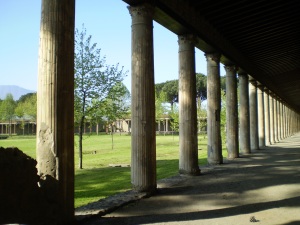In an article from earlier this year, former Governor General of Canada Adrienne Clarkson discusses the importance of indigenous languages to the structure and cohesion of Canadian citizenship. More importantly, she states that, in light of the history of cultural genocide in Canada, most of these indigenous languages are at risk of being lost forever and, as such, we are at risk of losing a part of our history and culture. “Losing one’s language is like losing all freedom of expression. It is the loss of a human right.”
That comment resonated with me. As a student of ancient history – Ancient Greek and Roman in particular – I take it as a given that there existed a panoply of languages throughout the Ancient Mediterranean and Near East and that, although Latin became the lingua franca as its empire rose from the Hellenistic world of Alexander (whose own empire used a simplified version of Classical Greek, called “KOINE”, as its attempt at a universal language), a person may find themselves haggling with a shopkeeper or property owner in Aramaic or Gaulish or Greek or Persian or Latin. Multilingualism was a part of the ancient world the way computers are part of the modern one. And this freedom of expression – though never articulated as such – presents a delightful anachronism for me. Human rights, including the freedom of expression, is a concept that did not exist as we know it two thousand years ago. I rail against this when researching slavery in the ancient world and see scholars discussing the morality of it as one does for American slavery and other modern forms of human ownership. Even the idea of a “human being”, an “individual, or a “person” were not part of legal rights in the Roman world.
This, then, raises a question that I cycle through almost daily. How would you say something in another language? Would you say it the same way as you do in your mother tongue? What words were used to describe a legal individual, or infinity in philosophy and mathematics (which only became separate areas of study relatively recently), or the difference between public and private space? How does a dead language like Latin help me to understand my own world and my own inherited thought processes and concepts of self?
I certainly believe that learning more than one language is a huge benefit for anyone. You learn a different way of saying something, of asking a question, of struggling to be understood, and of considering how a language developed through thought and idea to functional communication. You also learn why you think and say things the way you do, for there will always be something intensely unique about your perception of the world, and that perception is informed by the way you describe it to another person, and to yourself.
Language is not only a connection to the past, it is a vibrant demonstration of the cultures of the past and present. As a person sympathizes with another, living or dead, through the words they use, that person grows more familiar with a world they might not otherwise be able – or willing – to connect to any other way. That’s the beauty of language; unlike Yoda’s famous adage, it’s all in the attempt. And in this modern world of fear and hate and distress, trying to understand each other is the most important thing we can ever do.
